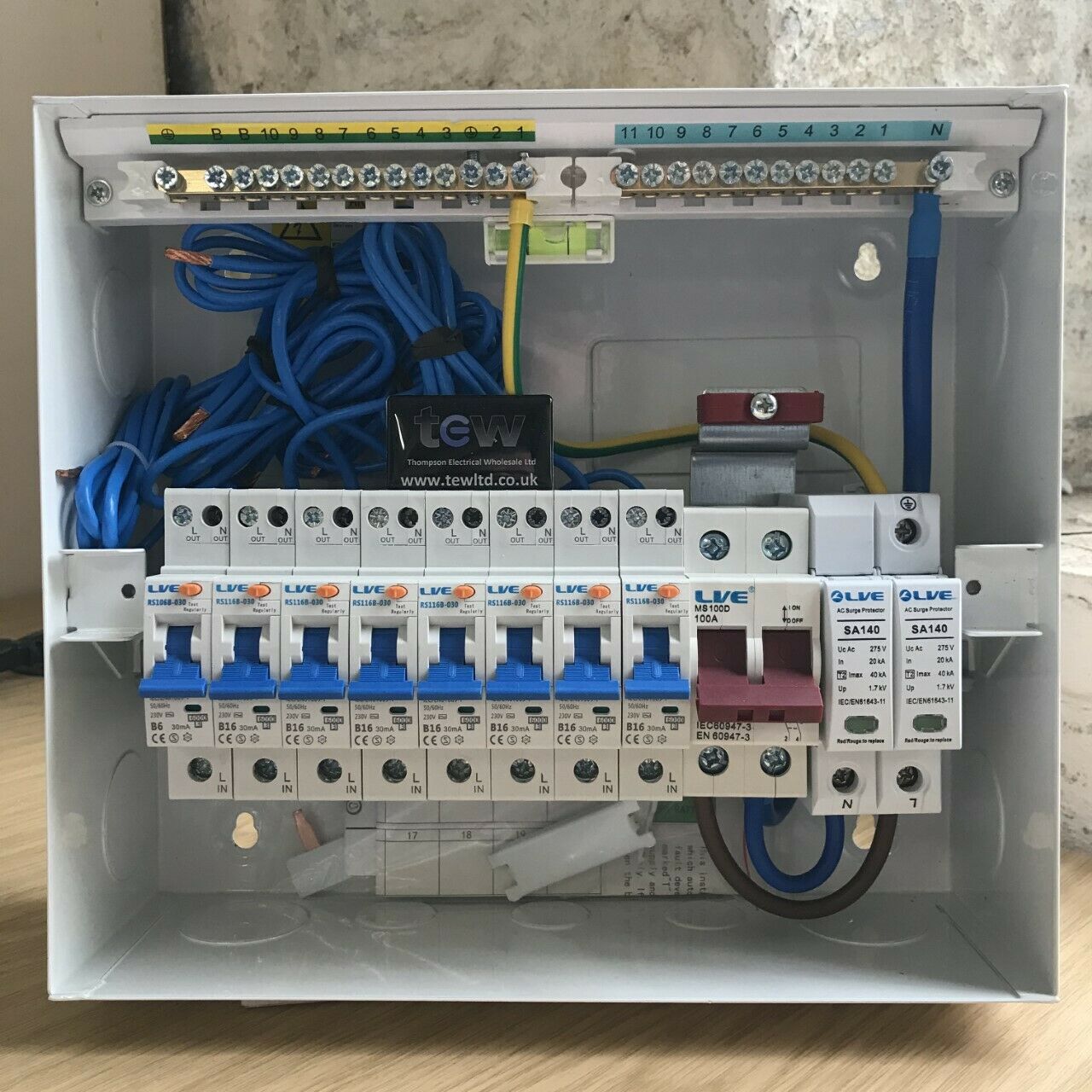Typical False Impressions About RCBO CONSUMER UNITS Explained
Typical False Impressions About RCBO CONSUMER UNITS Explained
Blog Article
The Duty of Consumer Systems in Efficient Power Monitoring Systems
Consumer systems are indispensable to efficient power monitoring systems, serving as the key distribution points for electrical power within structures. The advent of wise innovations has actually better improved their capability, allowing for real-time data monitoring and nuanced energy usage evaluation.
Recognizing Customer Devices

Comprehending the duty of customer devices starts with acknowledging their necessary feature in securing electric systems. By separating mistakes within particular circuits, consumer units prevent prevalent blackouts and possible fire threats. This isolation is attained with the usage of breaker that journey or merges that strike when a mistake is spotted, therefore cutting off the electrical flow to the affected circuit.
Furthermore, customer systems promote the orderly circulation of power, enhancing the effectiveness of power usage. They enable the systematic administration of electric lots, which can be especially crucial in business and commercial settings where need can vary dramatically. Effectively conserved consumer units contribute to the longevity of electric systems and aid in lessening downtime caused by electrical failings, eventually supporting the smooth operation of energy-dependent centers.
Smart Technologies Assimilation

A key benefit of smart consumer units is their capacity to take advantage of advanced formulas and artificial intelligence for anticipating analytics. This enables preemptive changes based upon use patterns, weather forecasts, and other variables, dramatically enhancing total effectiveness. Furthermore, smart consumer units help with need feedback programs, where power use can be dynamically adjusted throughout height durations to maintain the grid and decrease expenses.
The integration of renewable resource sources, such as solar and wind, is also structured with smart customer systems. By intelligently taking care of the intermittency of these resources, these units guarantee a balanced and reputable power supply. In addition, smart consumer systems improve user interaction by giving detailed understandings and remote abilities via mobile applications, cultivating a more aggressive method to energy preservation and sustainability.
Monitoring Power Consumption
Structure on the abilities of clever modern technologies assimilation, monitoring energy intake ends up being a critical emphasis within energy management systems. Effective monitoring functions as the structure for determining power inadequacies and carrying out restorative actions. By leveraging innovative metering framework (AMI), real-time information on energy usage can be accumulated at granular levels, offering valuable understandings right into usage patterns and peak demand periods. This data-centric technique allows both consumers and power supervisors to make enlightened decisions focused on decreasing waste and improving total effectiveness.
Smart meters and Web of Things (IoT) gadgets play a crucial role in this monitoring process. These devices can track power use in real-time, transferring information to centralized systems for evaluation.
The assimilation of these technologies not only equips customers with thorough details concerning their power usage yet additionally supports utility providers in taking care of tons circulation a lot more efficiently. Ultimately, continuous and precise monitoring is essential for accomplishing energy effectiveness, price financial savings, and sustainability objectives within energy administration systems.
Optimizing Device Use

One reliable approach entails recognizing peak and off-peak hours to shift energy-intensive activities, such as laundry or dishwashing, to times when energy demand is reduced. This not only reduces stress on the grid however likewise utilizes on lower power tariffs. Furthermore, integrating device learning algorithms enables for predictive maintenance, making sure devices operate at optimal performance and extending their life-span.
Power monitoring systems can likewise incorporate user-specific choices and habits to tailor device usage timetables. For example, smart lights systems can adjust illumination based on occupancy and all-natural light accessibility, while HVAC systems can keep comfort levels without extreme power use.
Supporting Sustainability
Advertising sustainability within power administration systems entails not only boosting effectiveness however likewise cultivating ecologically accountable methods. Customer units are important to he has a good point this process, as they give real-time data and control mechanisms that allow customers to keep an eye on and lower their energy consumption. By leveraging sophisticated innovations, customer units can determine energy-saving possibilities and promote the integration of sustainable power sources like solar and wind power.
One essential aspect of promoting sustainability is informing customers on the advantages of responsible energy use. With comprehensive understandings provided by consumer units, users can make informed decisions that reduce their carbon footprint. For example, these devices can recommend optimal times for operating high-energy appliances based on grid demand and eco-friendly power accessibility, consequently reducing reliance on fossil fuels.
Moreover, customer systems sustain the fostering of clever grid innovations, which improve the general effectiveness and dependability of power distribution. By enabling two-way communication between consumers and energy service providers, these systems can dynamically adapt to power demands, reducing waste and advertising the use of sustainable power techniques.
Verdict
Consumer units, as important components of power administration systems, considerably improve electric safety and effectiveness within structures via circuit defense and smart innovation assimilation. In addition, the consolidation of eco-friendly power sources promotes lasting methods, adding to reduced overall energy usage and reduced carbon impacts.
Advancements in wise modern technologies have changed the capabilities of energy management systems, especially via the assimilation of clever consumer units.Building on the capabilities of smart technologies assimilation, keeping track of energy usage comes to be a crucial focus within energy management systems.Effective home appliance usage optimization is an important element of energy administration systems, aiming to improve effectiveness and decrease unneeded power intake.Customer systems, as integral elements of energy management systems, considerably enhance electric safety and performance within structures with circuit security and clever innovation combination. Additionally, the unification company website of sustainable power resources promotes lasting practices, adding to lowered general energy consumption and lower carbon impacts.
Report this page